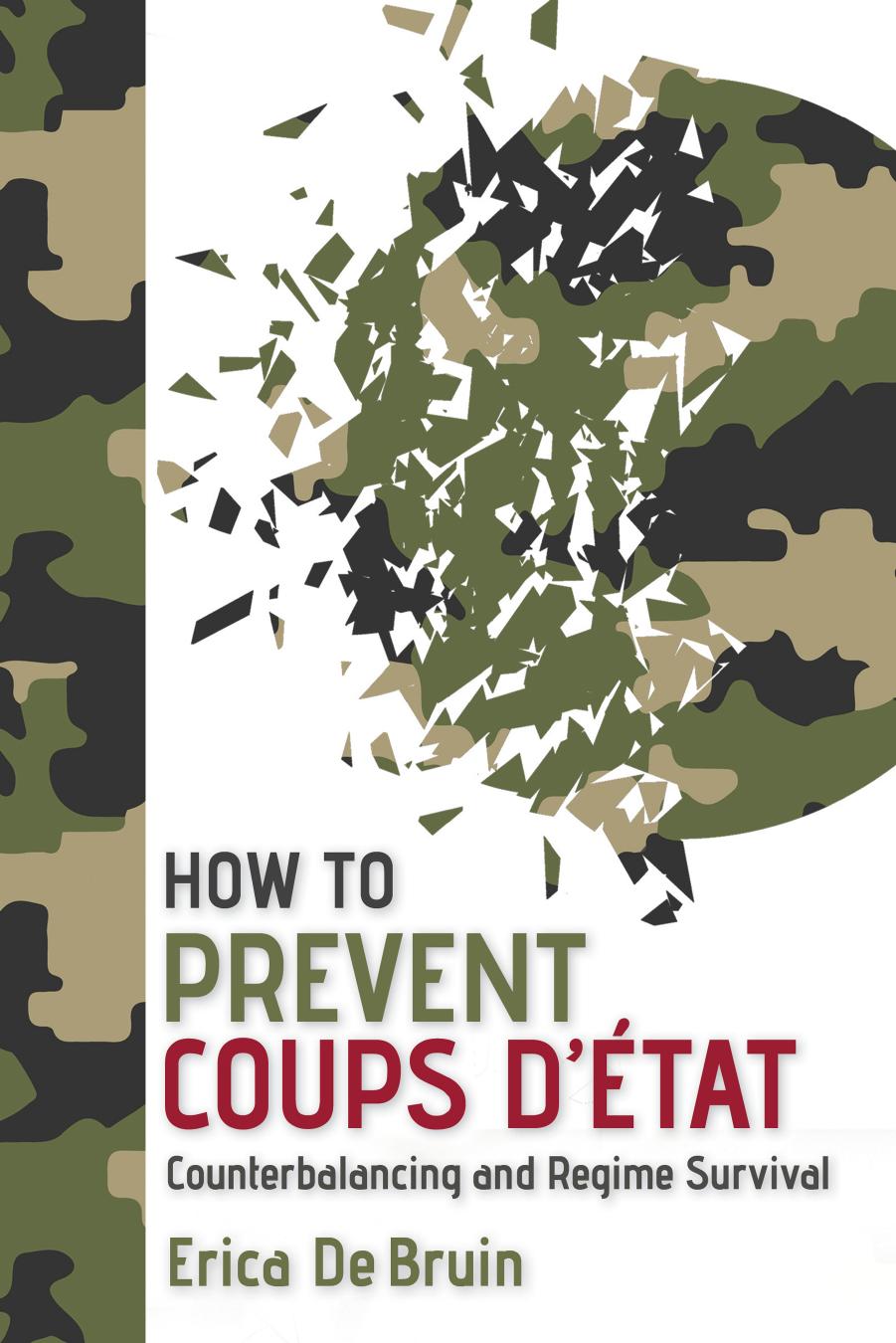How to Prevent Coups D'Ãtat: Counterbalancing and Regime Survival by Erica De Bruin

Author:Erica De Bruin [Bruin, Erica De]
Language: eng
Format: epub, pdf
Tags: Politics
ISBN: 9781501751912
Google: bvk3zQEACAAJ
Goodreads: 50698997
Publisher: Cornell University Press
Published: 2020-01-15T09:58:22+00:00
Failed Counterbalancing in Mali, 1960â1968: The Popular Militia
Like Nkrumah, Modibo Keita was ousted from power in large part because of his effort to counterbalance the military. Keita came to power in Mali in 1960. In the preceding years, he had established the Sudanese Bloc (Bloc Soudanais), which affiliated with the African Democratic Rally, a coalition of anticolonial parties, to become the Sudanese UnionâAfrican Democratic Rally (Union SoudanaiseâRassemblement Démocratique Africain, US-RDA). When Mali gained full independence, after an abortive effort to set up a union with Senegal, the US-RDA âhad already swept away or absorbed all semblance of an opposition.â70 Under Keitaâs leadership, Mali soon became a one-party state headed by the National Political Bureau (Bureau Politique National, BPN).
At independence, Mali had a comparatively professional military. It was composed of veterans of the French colonial military and volunteers, and was initially charged solely with territorial defense. Heavy weaponry imported from Communist countries in Eastern Europe built up the armyâs supplies.71 In addition to the regular armed forces, Keita formed a Popular Militia (Milice Populaire) in September 1960 as an auxiliary of the US-RDA. Its initial responsibilities included gathering intelligence and guarding national borders. In the mid-1960s, it was also used for agricultural labor in the countryside, establishing cooperative systems and harvesting collective fields where villagers resisted. At this point, the militia served largely as an agricultural workforce.72
Within a few years, the left-wing faction of the US-RDA emerged as the dominant one. Keita made several early moves to assert Maliâs economic independence and associate the country with Communist nations. These included leaving the French monetary union and establishing a new currency, the Malian franc. These choices had unfortunate economic consequences. In response, neighboring Senegal cut off Maliâs rail access to the ocean, which increased transportation costs and slowed exports. An alternative route through the Ivory Coast was eventually secured but at an increased cost. At the same time, France cut off economic subsidies. The result was several years of inflation and economic decline. Keita was forced to introduce austerity measures in 1964. He eventually had to sign a new currency accord with France, under the terms of which Maliâs currency was devalued and government expenditures cut.73 In 1967, an assessment concluded, âModibo is likely to find himself under increasing pressure as a result of continuing economic strains, inevitable disappointments with the rate of economic recovery under the French Accords, and growing dissatisfaction of labor and youth with the prospects Modibo offers them.â74
As the economic situation deteriorated, Keita came to depend more heavily on the military to quell internal dissent. Demonstrations by local business leaders were violently repressed.75 When the Tuareg rebellion broke out in the north in 1963â1964, the army was sent to suppress it. The conflict turned into a âvicious, bitter struggleâ that demoralized many of the soldiers who participated.76 Increasingly, Keita asked the army to intimidate opponents inside and outside of government. The army resented taking on this new role.
In August 1967, Keita began a new campaign of âideological purificationâ and anticorruption that came to be called the cultural revolution.
Download
How to Prevent Coups D'Ãtat: Counterbalancing and Regime Survival by Erica De Bruin.pdf
This site does not store any files on its server. We only index and link to content provided by other sites. Please contact the content providers to delete copyright contents if any and email us, we'll remove relevant links or contents immediately.
The Secret History by Donna Tartt(19088)
The Social Justice Warrior Handbook by Lisa De Pasquale(12190)
Thirteen Reasons Why by Jay Asher(8910)
This Is How You Lose Her by Junot Diaz(6887)
Weapons of Math Destruction by Cathy O'Neil(6280)
Zero to One by Peter Thiel(5802)
Beartown by Fredrik Backman(5754)
The Myth of the Strong Leader by Archie Brown(5507)
The Fire Next Time by James Baldwin(5446)
How Democracies Die by Steven Levitsky & Daniel Ziblatt(5218)
Promise Me, Dad by Joe Biden(5153)
Stone's Rules by Roger Stone(5088)
A Higher Loyalty: Truth, Lies, and Leadership by James Comey(4964)
100 Deadly Skills by Clint Emerson(4925)
Rise and Kill First by Ronen Bergman(4789)
Secrecy World by Jake Bernstein(4753)
The David Icke Guide to the Global Conspiracy (and how to end it) by David Icke(4720)
The Farm by Tom Rob Smith(4511)
The Doomsday Machine by Daniel Ellsberg(4490)
